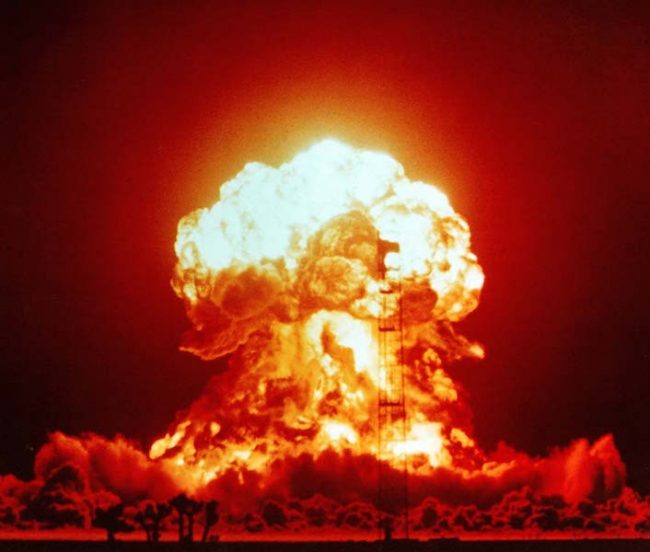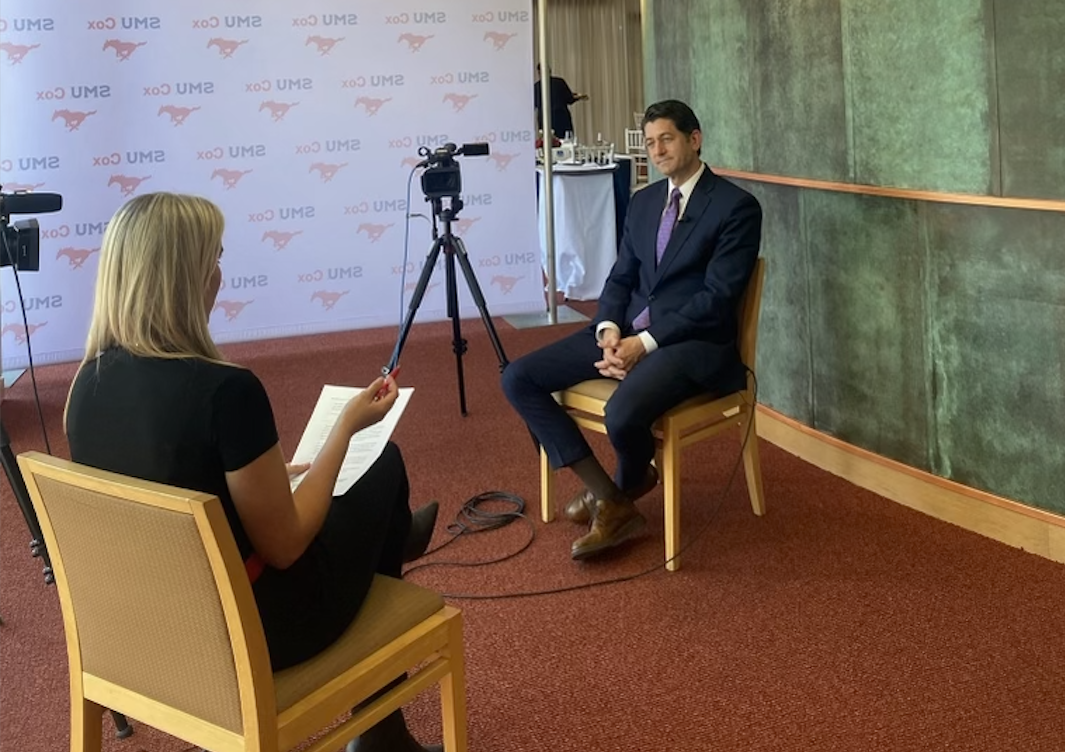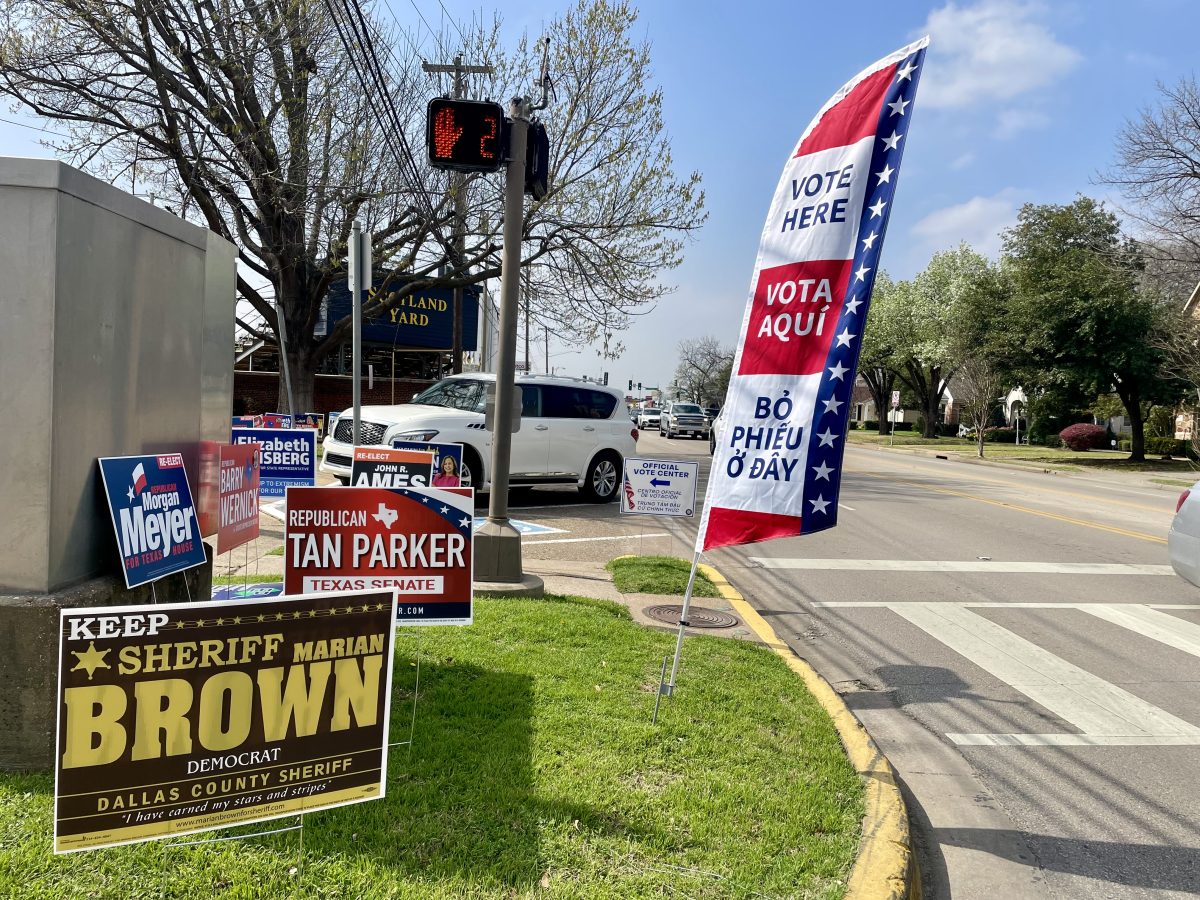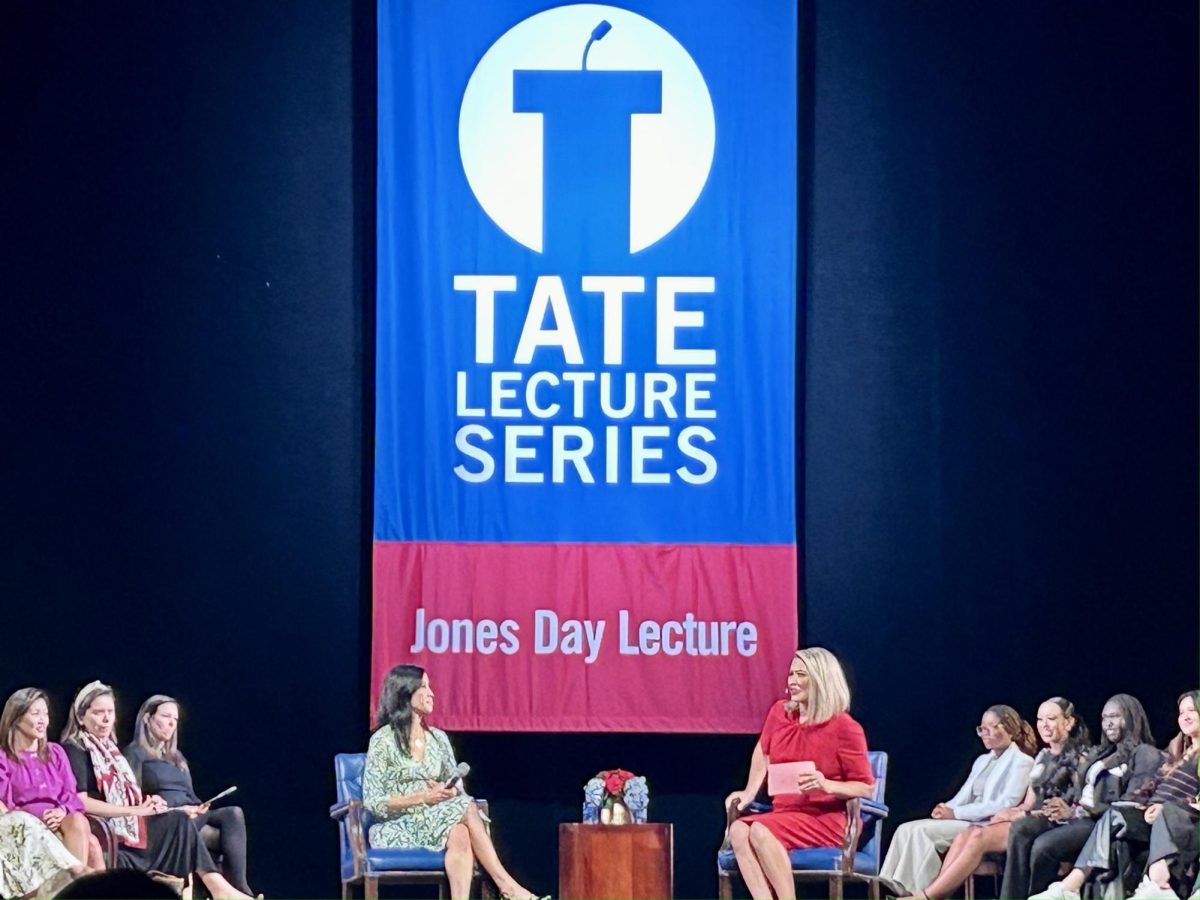Anthony J. Colangelo, Professor of Law at SMU Dedman School of Law, presented his latest research paper “The Duty to Disobey Illegal Nuclear Strike Orders” Monday as a part of the Tower Scholars Program.
About 40 people gathered to hear Colangelo’s talk and participate in a discussion about the future implications of nuclear strike orders.
Colangelo’s thesis is that conventional weapons should be used instead of nuclear weapons in situations where the two can be used interchangeably, because of certain characteristics that differentiate nuclear weapons from conventional weapons.
“If conventional weapons can be used to achieve the same or similar military objectives as nuclear weapons in proximity to civilians, and nuclear weapons are ordered to be used instead, that order may be manifestly illegal, leading to war crimes for which actors can be liable if they obey the illegal order,” Colangelo said. “This universal customary international law applies both to state and non-state actors alike.”
Colangelo argued that whenever conventional weapons can be used instead of nuclear weapons, conventional weapons are the best alternative. He based his argument against nuclear weapons as an alternative on five unique characteristics of nuclear weapons: the blast power of the weapons, the release of radiation that causes damage to DNA, the impossibility of humanitarian assistance, the damage to the environment, and lastly the psychological injury of survivors.
After Nazi war crimes were prosecuted during the Nuremberg Trials, superior orders could no longer be used as a defense in international law. This led to the “duty to disobey.” The duty to disobey illegal orders is recognized under United States national law by the ICC and the U.S. Military.
“Ultimately what I wanted to say in this essay was that if anyone in the chain of command, starting with the President at the top on down, uses nuclear weapons rather than conventional weapons in proximity to civilians, that is a war crime and that individual can be held liable criminally and civilly,” Colangelo said.
Given the volatility of the United States’ current relations with North Korea and the looming threat of nuclear strikes, many community members felt strongly about this topic and had a number of questions for Colangelo. Among these members was Frank Hytken who has been a practicing lawyer for 46 years.
“Take the North Korean situation where you got Seoul 25 miles South of the border, and the North Koreans have somewhere an excess of 10 thousand artillery pieces they can hit Seoul with without even moving,” Hytken said in a question and answer session. “They can fire 10 thousand shells a minute at Seoul, which can result in millions of casualties quickly. In that situation would you say that the use of nuclear weapons to take out those artillery pieces or to retaliate against North Korea would be something that would be legal under international law?”
Colangelo stuck closely to his thesis in his answer.
“Yes, as long as conventional weapons cannot achieve the same objectives,” Colangelo said. “If you can use conventional to prevent that from happening, then use conventional weapons. If you can’t use conventional weapons then it is justified.”
Concluding his presentation, Colangelo proposed adopting an international system that would apply to all state and non-state actors regarding the legality of nuclear weapons.
Bora Laci, the program coordinator at the Tower Center for Political Studies, planned this presentation after conducting a survey which showed that nuclear weapons were a topic that SMU’s community members were interested in learning more about.
“This will give people a different perspective than watching what is going on the news or reading what is happening on Twitter or Facebook,” Laci said. “At this discussion someone with more expertise [explained] that members of the military have the right to disobey orders that are illegal.”

















